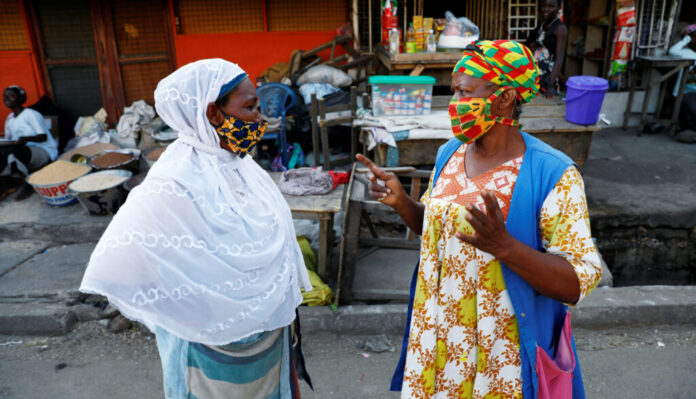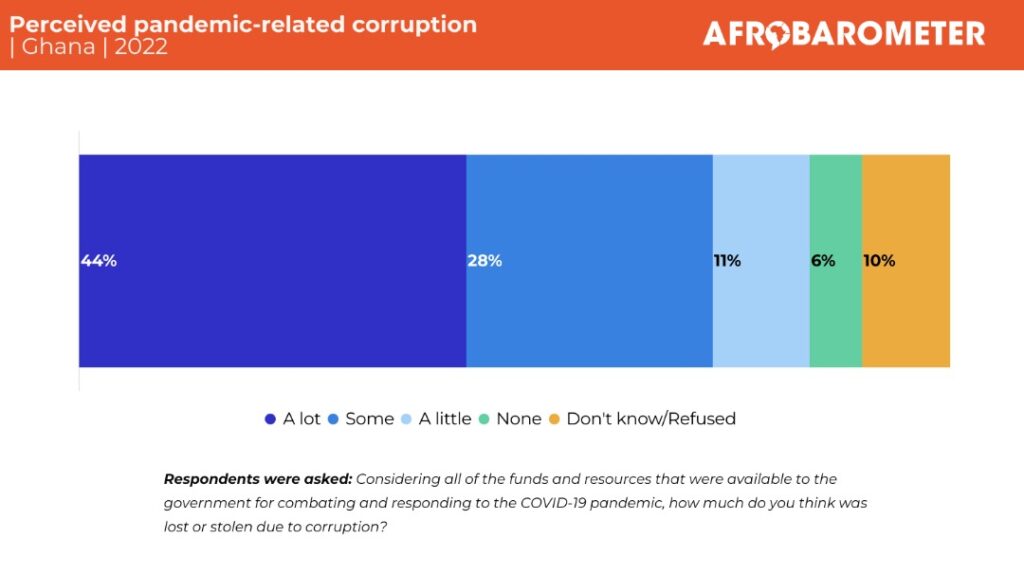
Most Ghanaians believe that a chunk of funds intended for the Covid-19 pandemic response has been lost to corruption.
This was captured in Afrobarometer Round 9 survey conducted in April 2022.

Few Ghanaians reported that their household received pandemic-relief assistance from the government, while many said the distribution was unfair.
“Only half (50%) praised the government’s provision of relief to vulnerable households (Figure 3).
“Only two in 10 Ghanaians (20%) reported that their household had received COVID19 relief assistance from the government, while 80% said they had not (Figure 4).
“Only three in 10 citizens (31%) said that COVID-19 relief was distributed “somewhat fairly” or “very fairly,” while two-thirds (67%) said the distribution was unfair (Figure 5).
“And more than seven in 10 (72%) believe that “some” (28%) or “a lot” (44%) of the resources intended for the COVID-19 response were lost to corruption (Figure 6), said the Afrobarometer report.
This comes on the heels of a similar report recently released by the Auditor-General showing the government’s misuse of funds during the COVID-19 pandemic.
The Ghana audit service report on the government’s covid-19 expenditure for the period going from March 2020 to June 2022 recorded various infractions.
In all, GH¢21,844,189,185.24 (over a billion US $) was mobilised to mitigate the impact of COVID-19 pandemic in Ghana.
The 119-page long report highlighted irregularities in the management of some tranches of the funds.
Among them, is the payment of over 10 million cedis in insurance premiums to cover 10,000 frontline health workers and allied health professionals without a binding contract detailing among others who the beneficiaries are.
Afrobarometer survey
The Afrobarometer team in Ghana, led by the Ghana Center for Democratic Development, interviewed a nationally representative sample of 2,369 adult Ghanaians in April 2022.
“A sample of this size yields country-level results with a margin of error of +/-2 percentage points,” the release said.
Here is the full press release with the findings
Source: Ghana/Starrfm.com.gh/103.5 Fm




